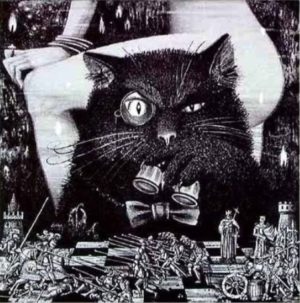You have no items in your cart. Want to get some nice things?
Go shopping
“There are some fights that ain’t worth fighting even if you win.
There are other fights you have to fight even if you lose.”
—Tavis Smiley
Fiction. That beautiful word.
I began my second novel with this quote from Tavis Smiley. I needed something to kick start what I was taking on. And it did. At least I hope. I’m not sure that when I found these words that I was totally aware of what was to come. What was marching towards us all. I suppose I couldn’t know that. In the same way that I can’t know if this new unpublished book will work. But that is the future. I am here now. Alive, working, and fighting during the rise of “alternative facts,” “fake news,” and a hatred for all things learned, experienced, fact-checked.
One might think this a renaissance period for the fiction writer. A time to rejoice. Our craft suddenly elevated to the highest levels of power and governance. Everyone seems to be throwing around a love for twisting the truth. One might rejoice.
In truth, it feels a bit like stepping into Bulgakov’s The Master and Margarita, sinking back to a time when our Masters were demanding to be appeased and entertained. Our artists told “to depict life not realistically but aspirationally.” The truth buried deep beneath the narrative skin so that one could survive to write again and again, to jab at one’s righteous ruler, to survive, if that was even possible.
These days who are we to resist the temptation to cash in on this sudden cultural foray back into the world of alternativism. After all, fiction is fact! It would seem a good time to be in the trade of trading truths. A good time to spin the wheel of spin. It would seem you could be useful to a certain class of thought.
There are fictional massacres. Scientists fighting for their fact-based lives. Parents tormented by the followers of alternative media cults. And entire fictional narratives dedicated to abolishing even the most basic foundations of what essential organisations provide our stumbling, crumbling country. The truth is that we are living in a post-truth world. There is a market for sleight of hand. For the twisters of truths. For the speakers of fiction.
But there’s a problem with that. Always a rub. Most of the authors that I adore, admire, respect, root their storytelling in reality. Have employed research of some type. Birthed their characters and worlds in living breathing fact and a mirrored state of what it’s like to be human.
They produce work that allows a window into shared experience, shared humanity. They produce a path to empathy, understanding, dignity and respect for the other. Their stories tell of what could be and what has passed and what might in fact be true about our common humanness. In a word, they tell the TRUTH. Fiction as truth? Our stories as a tool to fight the good fight? Perhaps.
If this is to be the case. If the tradition of fiction is to continue. Then what of its authors. What of its audience. Because both of these living, loving groups, must exist in the real realm of alternative-fact-based logic. Both must wrestle with the targeted disintegration and vocal disgust for scientific research. Must listen to the roaring cheers for the hopeful crumbling of institutions such as journalism and academia.
Make no mistake, we are workers in a renewed era of the snake-oil salesman. Of the crook. Of the crony capitalist. They share their versions, their stories, their tantalising tonics. And we collectively drop our jaws. Slap our hands at the crowded lines they receive. Wring our hands at the family members that spread their pamphlets. Even marvel at the webs they weave.
Fiction. What a beautiful word.
We no longer have James Baldwin to hold our hand. To show us the mirror so that we might take a long look at ourselves. But we have others, writers who live and create and wander the lonely plain of experience. We have our words. And our stories. And our power.
We have a new-born energy. A need to keep talking. To keep writing. To keep unearthing the fictional tales that might just help us save this world we love.
We have the tools to step out from behind the curtain and call a lie, a lie. Because, after all, who knows how to navigate this beautiful struggle better than us. And that’s a fight we have to fight even if we lose.

About Calder G. Lorenz
Calder G. Lorenz is the author of One Way Down (Or Another), his debut novel from Civil Coping Mechanisms Press.His shorter fiction has been published in sPARKLE & bLINK 2.4, Switchback, Curly Red Stories, FictionDaily, Two Dollar Radio's Noise, Literary Orphans, Crack the Spine, Black Heart Magazine, Litro Magazine, The Forge Literary, The Birds We Piled Loosely, New Pop Lit, Devil's Lake, and gravel. He resides in San Francisco and works in the Tenderloin District at St. Anthony’s Dining Room.





i really love the rhythmic vibe that this piece has in exploring truth and fiction. I really think that there is a fine between what is real and what is imagined, fiction and non-fiction. Fiction can come from imagined places or from places of truth, but i do agree that being honest, i think being honest with oneself as a writer is necessary. Great work and good luck with your writing